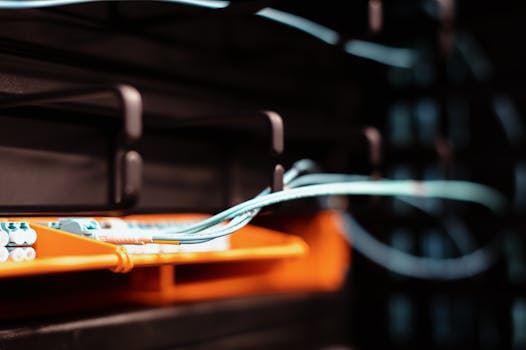
The Role of Fiber Companies in Africa’s Smart City Initiatives
Fiber companies play a crucial role in Africa’s smart city initiatives, providing high-speed internet connectivity and enabling the development of smart infrastructure, services, and applications. As African cities continue to grow and urbanize, the demand for reliable, fast, and efficient telecommunications infrastructure has never been more pressing. Fiber companies are at the forefront of this effort, investing heavily in the deployment of fiber optic cables and other telecommunications infrastructure to support the development of smart cities.
Introduction to Smart City Initiatives in Africa
Africa is home to some of the fastest-growing cities in the world, with many expected to become megacities in the coming decades. As these cities grow, they face numerous challenges, including inadequate infrastructure, inadequate services, and environmental degradation. To address these challenges, many African cities are turning to smart city initiatives, which leverage technology and innovation to create more sustainable, efficient, and livable urban environments. Smart city initiatives in Africa focus on a range of areas, including energy, transportation, water and sanitation, waste management, and public safety.
The Role of Fiber Companies in Smart City Initiatives
Fiber companies are essential to the success of smart city initiatives in Africa. By providing high-speed internet connectivity, fiber companies enable the development of smart infrastructure, services, and applications that are critical to the functioning of smart cities. For example, fiber optic cables can be used to connect sensors and other devices that monitor and manage traffic flow, energy usage, and water distribution. Fiber companies also enable the development of smart applications, such as smart grids, smart buildings, and smart transportation systems, which rely on high-speed internet connectivity to function effectively.
In addition to providing high-speed internet connectivity, fiber companies also play a critical role in supporting the development of other smart city infrastructure, such as data centers, cloud services, and cybersecurity systems. By investing in these areas, fiber companies help to create a robust and secure telecommunications ecosystem that supports the development of smart cities.
Examples of Fiber Companies in Africa’s Smart City Initiatives
There are many examples of fiber companies playing a critical role in Africa’s smart city initiatives. For example, in South Africa, the city of Cape Town has partnered with fiber company, FiberCo, to deploy a fiber optic network that will provide high-speed internet connectivity to residents and businesses. Similarly, in Nigeria, the city of Lagos has partnered with fiber company, MainOne, to deploy a fiber optic network that will support the development of smart city infrastructure and services.
In Kenya, the city of Nairobi has partnered with fiber company, Liquid Telecom, to deploy a fiber optic network that will provide high-speed internet connectivity to residents and businesses. This network will also support the development of smart city infrastructure and services, such as smart traffic management and smart energy systems.
Conclusion
In conclusion, fiber companies play a vital role in Africa’s smart city initiatives, providing high-speed internet connectivity and enabling the development of smart infrastructure, services, and applications. As African cities continue to grow and urbanize, the demand for reliable, fast, and efficient telecommunications infrastructure will only continue to grow. Fiber companies are well-positioned to meet this demand, and their investment in fiber optic cables and other telecommunications infrastructure will be critical to the success of smart city initiatives in Africa.




